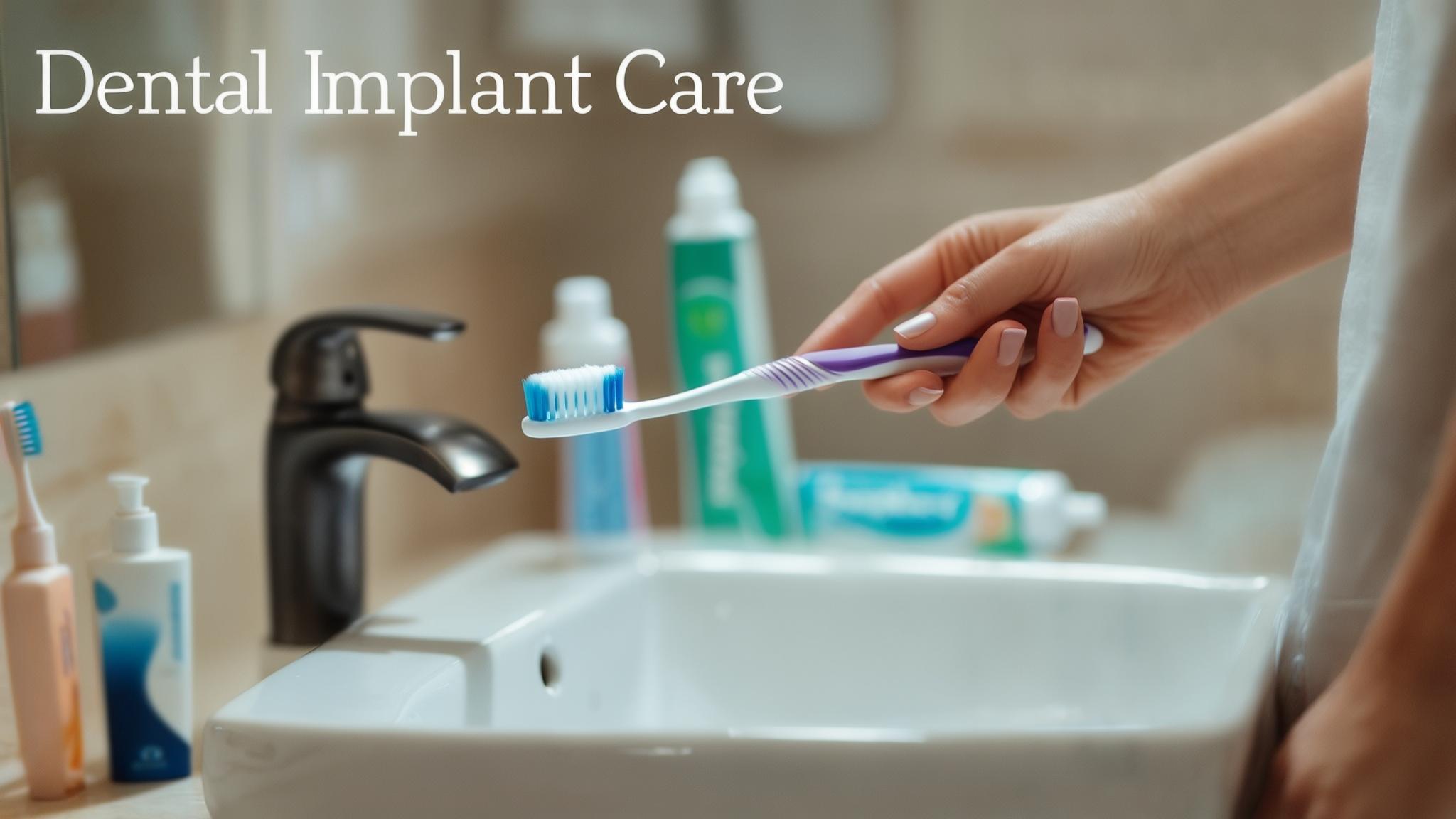Understanding Dental Implants
Dental implants are a popular solution for replacing missing teeth. They consist of three main components: the implant post, the abutment, and the crown. The implant post is a titanium screw that is surgically inserted into the jawbone, acting as the root of the new tooth. The abutment connects the post to the crown, which is the visible part that looks and functions like a natural tooth.
Unlike natural teeth, dental implants do not have a periodontal ligament, which means they may feel slightly different. However, they still require meticulous care to maintain their longevity. Good oral hygiene is crucial to prevent infections and ensure the implant integrates well with the jawbone.
Oral Hygiene Practices for Dental Implants
Maintaining a daily oral hygiene routine is essential for the health of your dental implants. Brushing twice a day with a soft-bristle toothbrush helps remove plaque and food particles. Flossing daily is also important, as it cleans areas between the teeth and implants that a toothbrush can't reach. Consider using a mouthwash to reduce bacteria and freshen breath.
Regular dental check-ups are vital to monitor the health of your implants and surrounding gums. Dentists can provide professional cleanings and check for any potential issues early on.
Additional tools like interdental brushes and water flossers can be particularly helpful. These tools can reach into the spaces around implants and help keep them clean without damaging the gum tissue.
Do Dental Implants Require Special Toothpaste?
When it comes to toothpaste, understanding the ingredients is essential. Standard toothpaste typically contains fluoride, which helps prevent cavities, and abrasives, which aid in cleaning. However, some toothpaste can be too abrasive for dental implants. Over time, abrasive toothpaste can wear down the surface of the crown.
Whitening agents in toothpaste can also be a concern. They might not be suitable for implants as they can affect the color of the crown, leading to a mismatch with natural teeth.
For dental implants, it's recommended to use non-abrasive formulas. Fluoride toothpaste is beneficial as it helps protect the remaining natural teeth and gums. Natural or sensitive toothpaste options can also be a good choice as they are generally gentler on the mouth.
Best Oral Hygiene Products for Dental Implants
When choosing oral hygiene products for dental implants, consider:
- Non-abrasive toothpaste: Brands like Sensodyne or Biotene offer gentle options suitable for implants.
- Toothpaste specifically designed for implants: Some brands create formulas that cater to the needs of implant patients.
For toothbrushes, soft-bristle toothbrushes are recommended as they are gentle on the gums and implants. Electric toothbrushes can also be effective in removing plaque with minimal effort.
For flossing, look for floss designed for implants, which is often more gentle and effective. Interdental brushes can clean between implants and natural teeth, reaching areas that regular floss might miss.
Mouth rinses can offer additional benefits. Antimicrobial mouthwashes help reduce bacteria, while alcohol-free options are recommended to avoid drying out the mouth.
Conclusion
In summary, maintaining excellent oral hygiene is crucial for the health and longevity of dental implants. Selecting the right toothpaste and oral hygiene products can make a significant difference. Always consult with your dental professional to ensure that your oral care routine is tailored to your specific needs.
References
- Studies on dental implants and oral hygiene practices
- Articles on the best oral care products for implants
- Resources for further reading on maintaining dental health with implants

